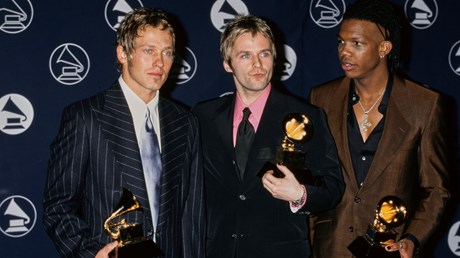When the CCM business model faltered, it gave way to what sells even better: politics and fearmongering.

This piece was adapted from Russell Moore’s newsletter. Subscribe here.
A friend and I were talking once about the first concerts we ever attended. His was Van Halen; mine was Amy Grant.
“Okay, second concert?” he asked.
Him: Mötley Crüe. Me: Petra.
After a minute or two of silence, he said, “You realize we would have hated each other in middle school, don’t you?”
One of us was part of a sheltered subculture quickly passing away. The other listened to music that was a gateway drug to what some say led to riots and rebellion. Turns out, my musical taste, not his, was the dangerous one.
In her new book, God Gave Rock and Roll to You: A History of Contemporary Christian Music, scholar Leah Payne argues that anyone wishing to understand some of the most epochal shifts in American culture and politics over the past 30 years ought to listen to the radio—specifically to the contemporary Christian music (CCM) genre of a generation of white evangelicals.
Payne writes that teenage kids like me were actually not the market for the CCM industry of the 1980s, 1990s, and early aughts. Our moms were. Payne reveals industry executives even had a collective name for the suburban middle-class mother who sought out Christian alternatives to popular music for her children: “Becky.”
The second avenue was the vibrant youth group culture of the time (where I came to love CCM). Payne writes: “The quirk of CCM’s business model—that the bulk of its sales came not through mainstream retailers marketing directly to teens, but through Christian bookstores who marketed primarily to evangelical caregivers interested in passing the faith to their children—became its defining ...
from Christianity Today Magazine
Umn ministry


.gif)

.gif)
.gif)
